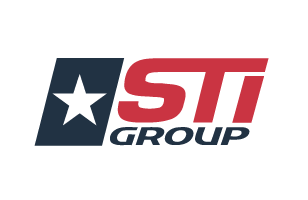Selecting the best welding process for a given application is the key to keeping quality high, costs low, and production on schedule. Each of the main welding processes has its own set of advantages and disadvantages and is absolutely indispensable in various industrial settings. That is particularly true of Gas Tungsten Arc Welding (GTAW), which allows just about any type of metal to be welded.
What Is GTAW?
Gas Tungsten Arc Welding (GTAW) is also commonly known as Tungsten Inert Gas (TIG) welding.The process involves the use of a non-consumable tungsten electrode and an inert shielding gas. The tungsten electrode forms a welding arc with the work surface while the inert gas simultaneously shields the welding pool from contamination. To understand how GTAW compares to Gas Metal Arc Welding (GMAW), check out our in-depth look at GMAW.
There are two main types of GTAW processes:
With a Filler Metal – Most GTAW applications involve the use of a filler metal. The filler metal is fed into the weld area by the welder, often by hand, and is melted to increase the bond between the work pieces being welded.
Without a Filler Metal – Some GTAW applications that are performed on thin materials do not require the use of a filler metal. This is known as autogenous welds or fusion welds. This type of weld can often be performed on corners, edges, and butt joints.
The most common shielding gas for GTAW is the inert gas argon. Argon is good at preventing weld defects which might occur in instances of varying arc length. However, sometimes helium is used instead since it helps provide better weld penetration. Both gases have advantages and drawbacks in terms of speed, quality, heat properties, and penetration etc. As such sometimes an argon/helium mix is used to get the best qualities of both gases.
The Advantages of GTAW
GTAW has a number of excellent advantages that make it one of the most important and fundamental welding processes. Advantages include:
- Versatility. It can be used to weld almost all metals.
- Quality. It allows for a high degree of control and when done correctly yields excellent results.
- Cleanness. GTAW does not create any spatter that must later be cleaned up.
- Options. GTAW can be used with or without filler metals and the heat input and other variables can be well controlled.
Another welding process that offers unique advantages and is used in a variety of industrial applications is Flux-Cored Arc Welding (FCAW).
The Disadvantages of GTAW
Despite the outstanding advantages of GTAW, there are also some disadvantages that make it non-ideal for all applications. Disadvantages include:
- Difficulty. GTAW is often considered the most difficult welding process to master and requires a lot of skill from the operator. For a welding process that’s considered easier to master, you might be interested in learning about Shielded Metal Arc Welding (SMAW).
- Speed. GTAW requires relatively slow travel speeds and has a lower deposition rate than other processes.
- Non-Automation. GTAW is difficult to automate and typically requires a manual application.
- Cost. Due to its slower speeds and non-automation it ends up being a more expensive process than many other options.
The Industrial Uses of GTAW
GTAW is most commonly performed on stainless steel, especially thin sections. It is also commonly used on non-ferrous metals including magnesium, aluminum, and copper alloys. This makes it a popular choice for industrial applications that require lightweight or thin metals. The high quality, low-defect potential of GTAW is also outstanding making it a popular choice for many industrial processes that require precision and superior results.
STI Group is proud to offer GTAW welding as an option for our fabrication and industrial clients. We always strive to utilize the absolute best welding process for a given application and will take into consideration the full range of needs and requirements that are present for a particular job. Regardless of whether GTAW is the selected welding process or whether a different process is used, our clients can count on STI Group for high quality, defect-free welds.

